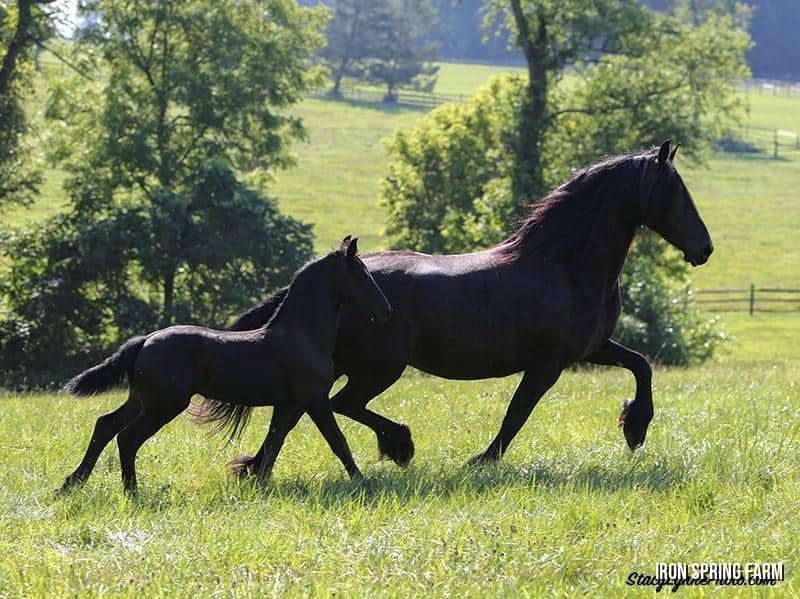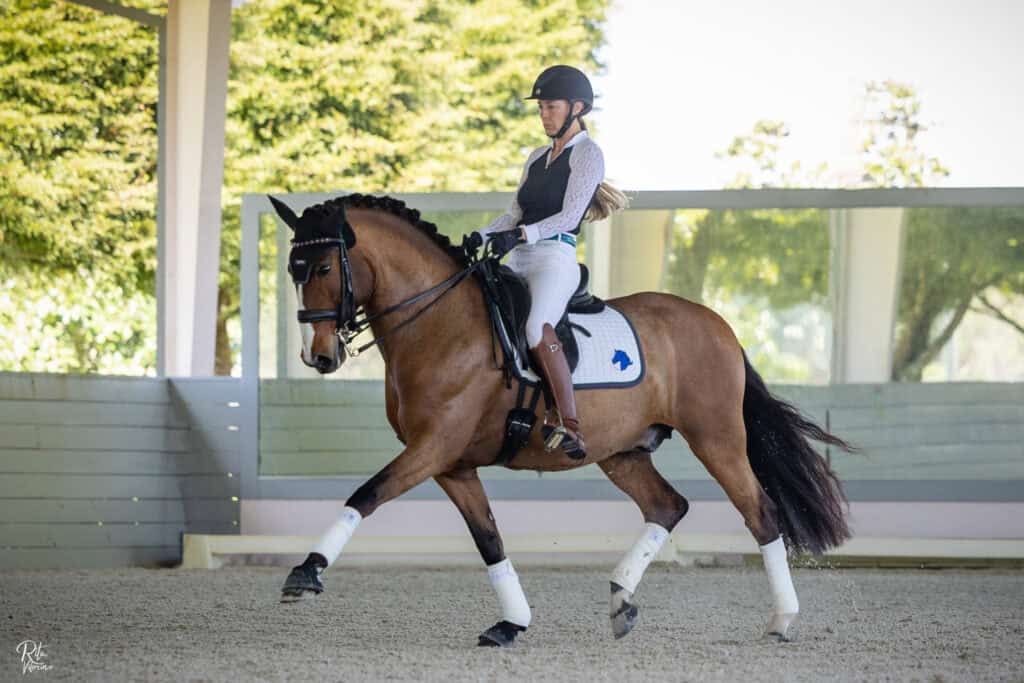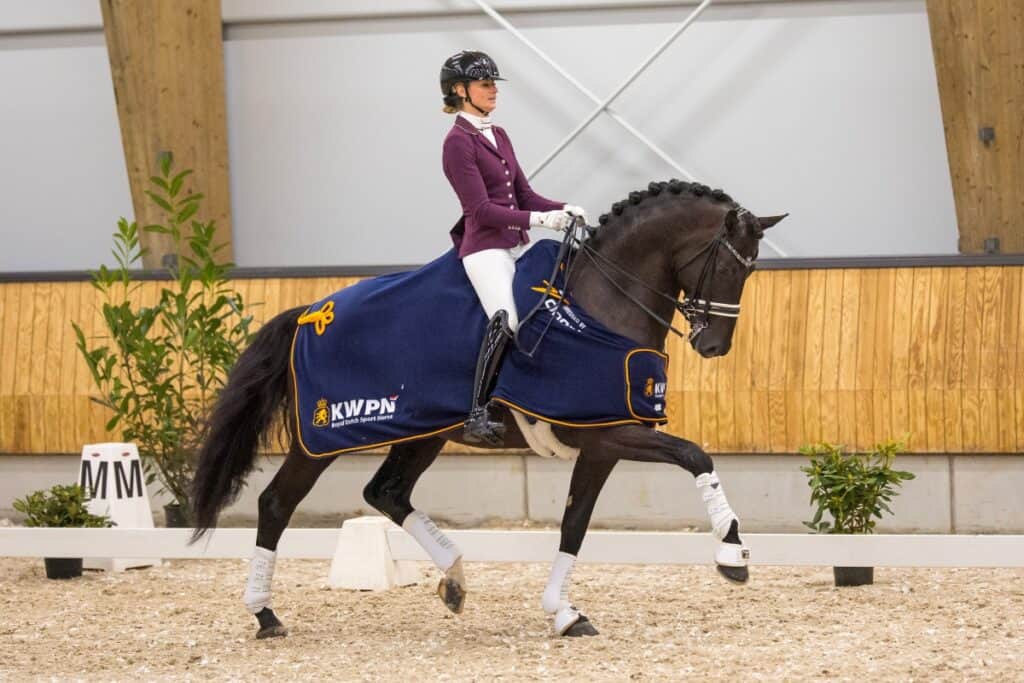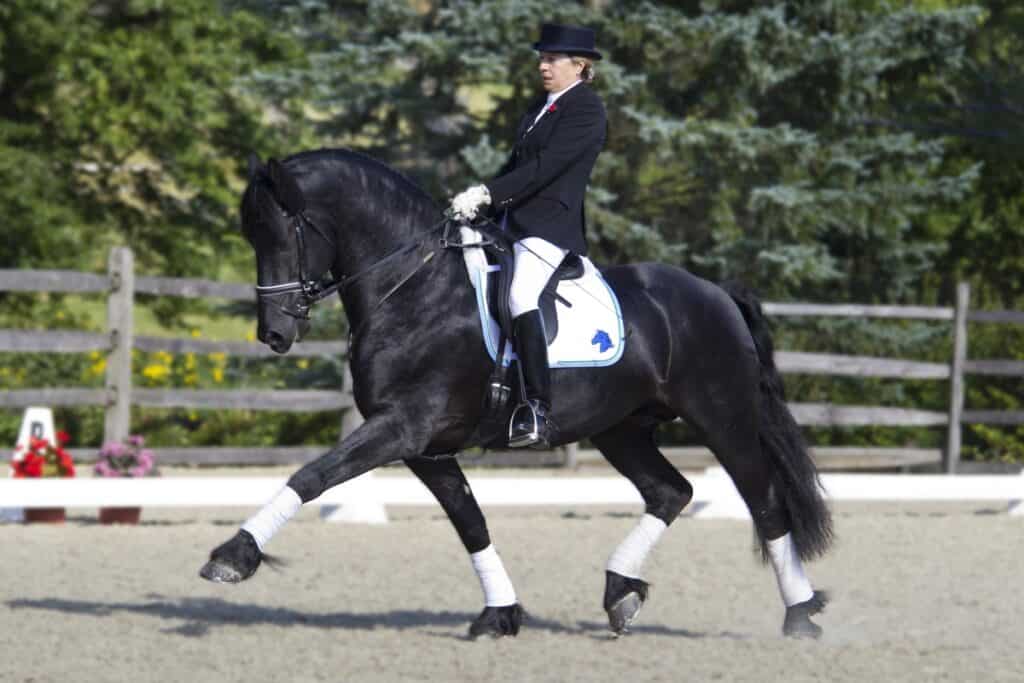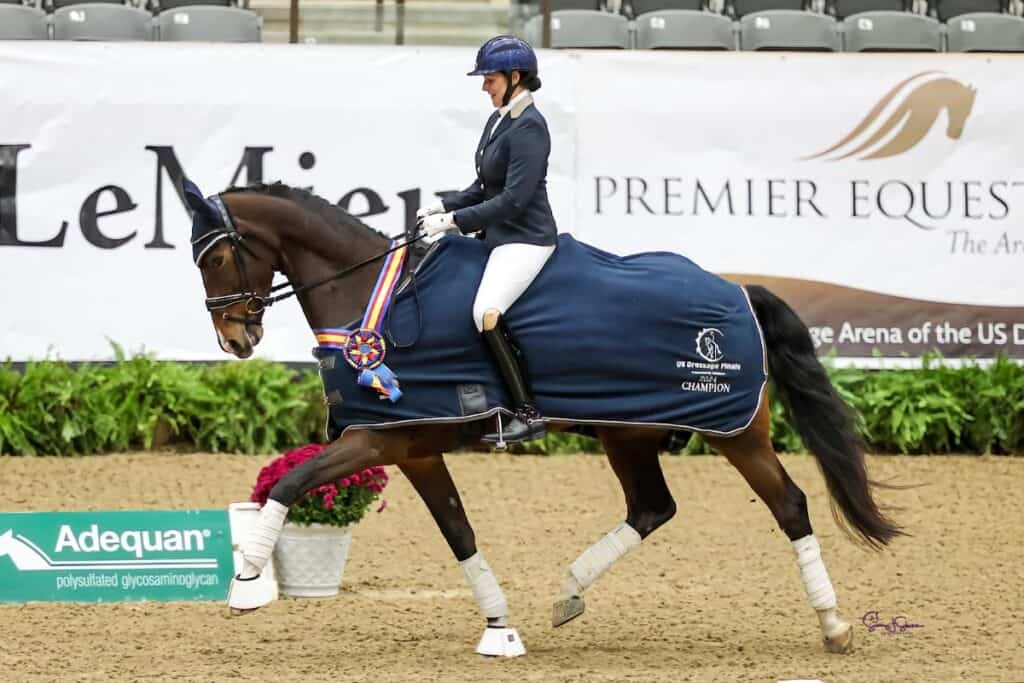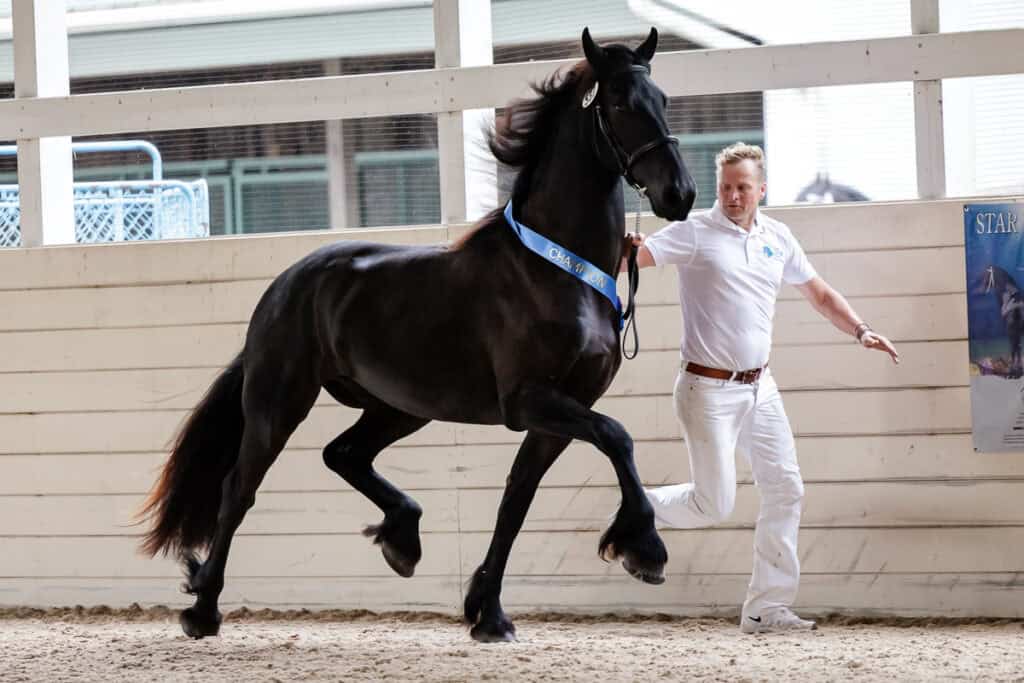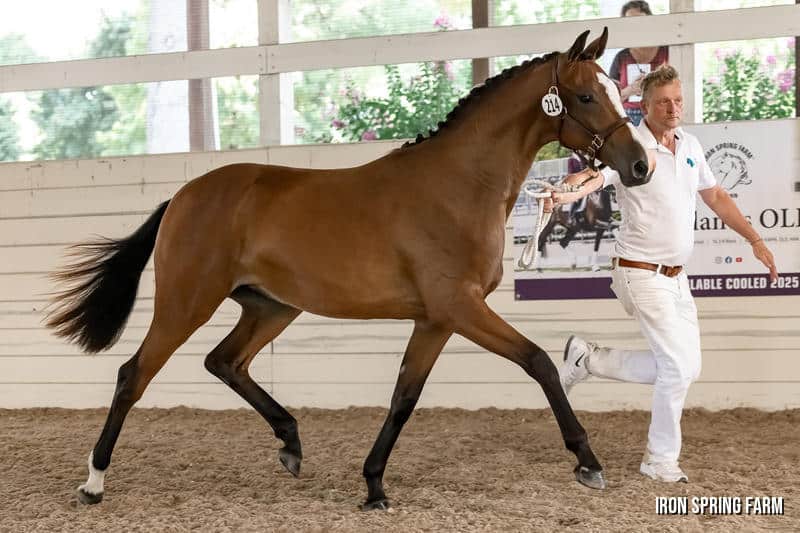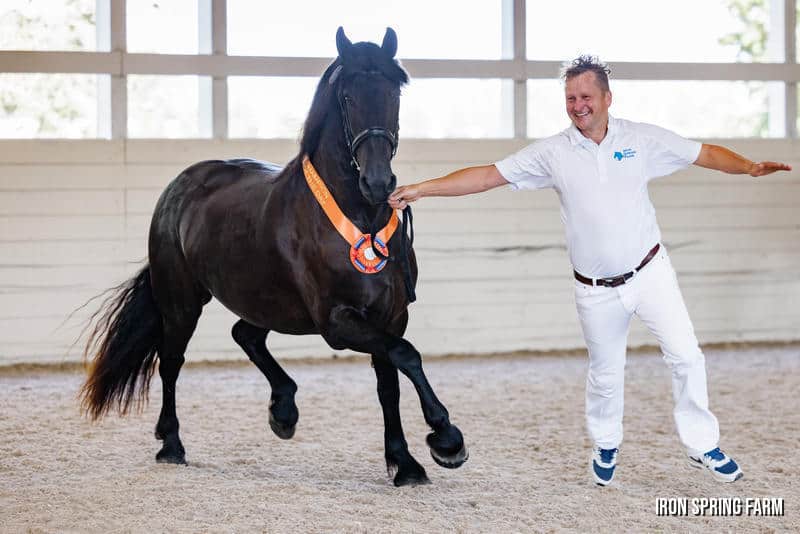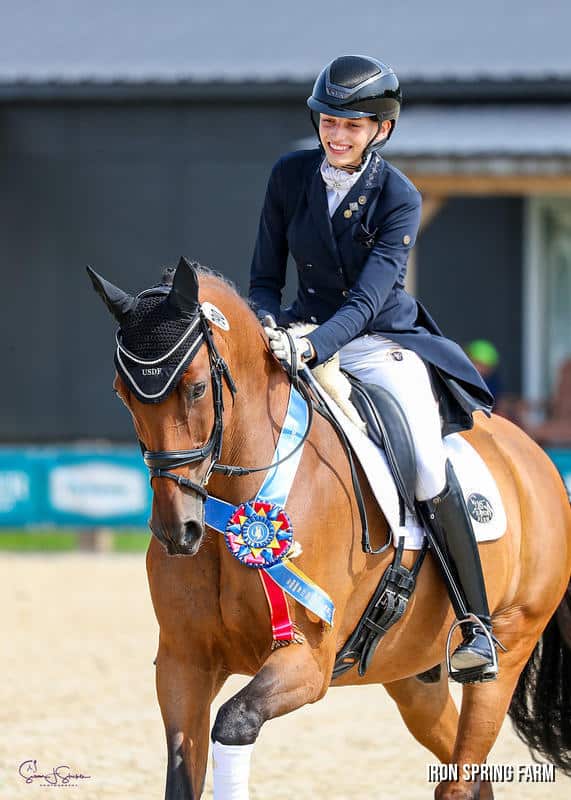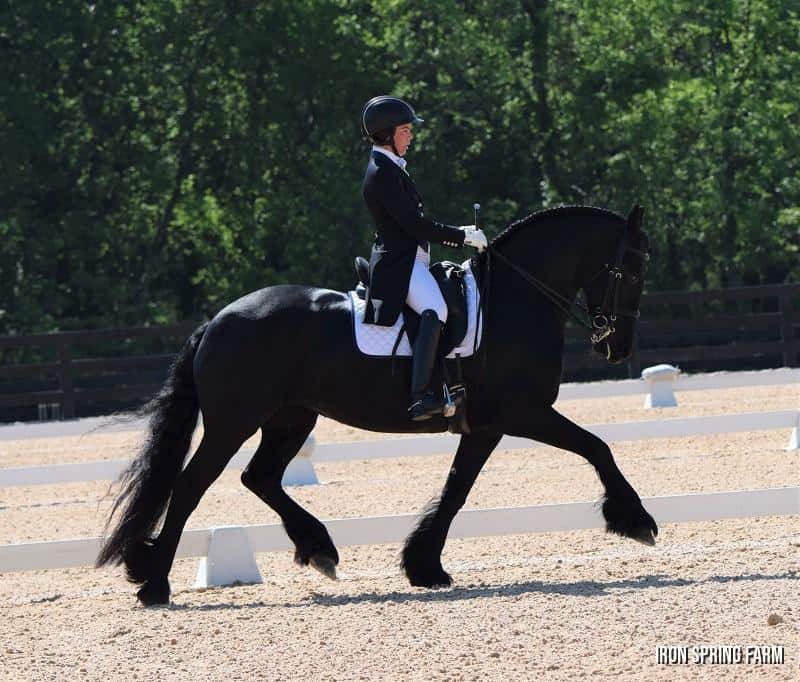To get your mare pregnant, you have to know the perfect time to breed her. This requires predicting ovulation, which starts by tracking your mare’s heat cycles. Andrea Bomkamp, broodmare manager at Iron Spring Farm, shares how we do it here at ISF.
I start teasing open mares around the middle of February so uterine cultures and/or biopsies can be completed before we start breeding around April 1. We start a little later than some places because of the weather in Pennsylvania, so we generally don’t plan for January or February foals.
With recently foaled mares, I start teasing 6-7 days after foaling so I can track the foal heat. Even if the foaling was uneventful, we also do a post-foaling check around this time to ensure the mare is healthy. (If there was dystocia or a retained placenta, the mare would have been examined or worked on previously.) It’s typical for a mare to be back in heat approximately 30 days after foaling. If she had a late foal heat, the 30-day heat may be delayed.
We tease every other day at Iron Spring Farm, but many places tease daily. It generally takes less than a minute to determine if the mare is reacting or not to the teaser stallion, so it’s not too time consuming. Generally if she isn’t bred, doesn’t become pregnant or stops reacting to the teaser stallion, she will be in heat again approximately 18-21 days later.
I keep a chart for each mare with a simple grading scale of 0-4, with 0 meaning no signs of heat, and 4 being obvious signs of heat, such as elevated tail, vulva winking or squatting and urinating. If you’re able to tease the same mare year after year, you learn if she’s shy or an obvious shower. Maiden mares are often shy and unsure of themselves, but they may change after a couple years of being teased or having foals.
Disclaimer:
All content provided by Iron Spring Farm is general and for informational purposes only. Content may also not constitute the most up to date information. Nothing in this content is intended to constitute veterinarian advice or to serve as a substitute for consultation with a veterinarian. Always seek the advice of your veterinarian or other qualified provider with any questions that you may have about the treatment and care of your horse.
Any reliance that you place on the information provided is strictly at your own risk and Iron Spring Farm, its officers, employees, representatives, and agents, hereby disclaim any and all liability to any party for any direct, indirect, implied, punitive, special, incidental, consequential or other damages arising directly or indirectly from access to or use of any content provided to the maximum extent permitted by law.
